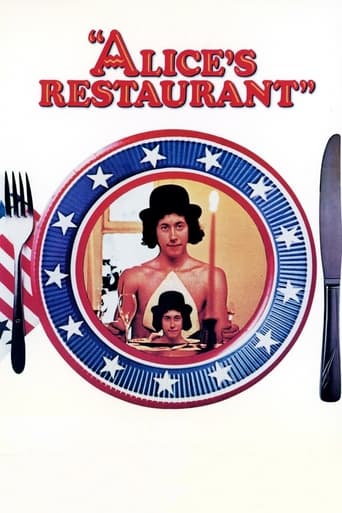heathfilmore
It's difficult, and somewhat unfair, to judge any artistic work based on the prejudices and attitudes of today, yet one can't go back in time and judge them from those of its own era. The best one can do is critique from known and accepted principles, in this case, a film, on acting, story and execution. On acting, it's hit and miss. The best actor is evened out by the worst, so it's a wash. On story, it's an idea, not a plot; a rambling series of incidents portraying the time--to that, it's a disjointed mess. Sad instead of poignant; whimsy instead of humor; bathos instead of drama. On execution, well it is Arthur Penn so it does have a certain flair, a certain style, yet it never catches hold; the themes are muddled and unclear; the characters are at times more pathetic and irritating than involving; oddly joyless. The editing is also haphazard. If Penn was going for "a statement" he instead created "a comment;" a cinematic throat-clearing. It's fine to make a film that creates more questions than answers, but the viewer is left to puzzle things out that shouldn't have been a puzzle, which just creates more mud.
In the end, AR is of its time, one long past, and in hindsight perhaps best left on the shelf, for as the one thing the film does show is that "the hippie dream" was born in false freedom, filth, suspect mysticism and beliefs, and ended--like the movie--in confusion, sadness, heartbreak, and an eventual acceptance of society norms.
fredupchurch
I remember like it was last week. We all went to the old Visualite Theater in Charlotte and saw it. I have nearly no memory of it at all, except the song and Arlo G. singing and the Woody characterI recall nothing else at all about the plot or how it was directed.I just stumbled across the movie watching TCM.Next Sunday ! plan to ask our minister to re-apply our vows. Wife and I have been through a lot of stress and uncertainty lately.
dougdoepke
Except for the bloody politician's war in Vietnam, I still have some affection for the '60's. The period was certainly a liberating experience from the uptight 1950's. However, viewed now apart from the hype of the time, Penn's movie has not worn well at all. It does convey something of the communal spirit of the day; plus the sweet-faced Guthrie has an appropriately congenial screen presence. But too many passages now seem pointlessly meandering, having lost whatever topicality they might have had. Another reviewer's comparison of the film with that of a home movie captures, I think, the basic flaw.Nonetheless, the movie manages a couple of amusingly revealing episodes. It's no surprise for the '60's, that both have to do with authority run amok. First the cops go to absurd lengths to convict Guthrie of littering, of all things; then in the film's highpoint, the tyrannical army- processing center treats him like a criminal. Though done satirically, each represents a popularly rebellious attitude of the time. Then too, unlike the rest of the film, the impact here is structured for effect. One other noteworthy point—it's no accident, I think, that it's a church the youngsters convert for their purposes. This can be understood as another subversion of authority by replacing the formal rules of authoritarian religion with those of the more easy-going humanism established by the communal restaurant. (At the same time, the sacramental wine of the former is replaced by a ceremonial joint that gets passed around.) Of course, without anything like formal rules, a downside is revealed once Alice ends up doing all the restaurant work, which the others happily shirk.The ending remains something of a puzzle. I take the forlorn bride (Alice) as a comment on the Hollywood cliché of 'they lived happily ever after'. Shrewdly, Penn doesn't want to leave us with the impression that a hippie ethic solves all social problems. Anyway, seeing the movie now, I realize how far into obscurity it has sunk after the big splash it made on initial release. For a much more entertaining and insightful glimpse of the period, check out Hal Ashby's mordant black comedy Harold and Maude (1972).
j-knutsson
This excellent film was written by my late screen writing teacher Venable Herndon, but I saw it and fell in love with it long before I took his class. It manages to be both good humored and effortlessly profound at the same time. The recruitment scenes are hysterically funny. I miss movies with this laid-back quality. A lot of people are adverse to this type of loose narrative structure, but since almost every flick and TV show has such a rigid structure why can't the rest of us have a couple of films to ourselves. The final shot of Alice's Restaurant with all its beautiful ambiguity has affected me more than the final shot of the "Searchers" every time I've seen it. It manages to celebrate something and take it with a grain of salt at the same time. Hurrah for the director of photography!A beautiful trip all round.





